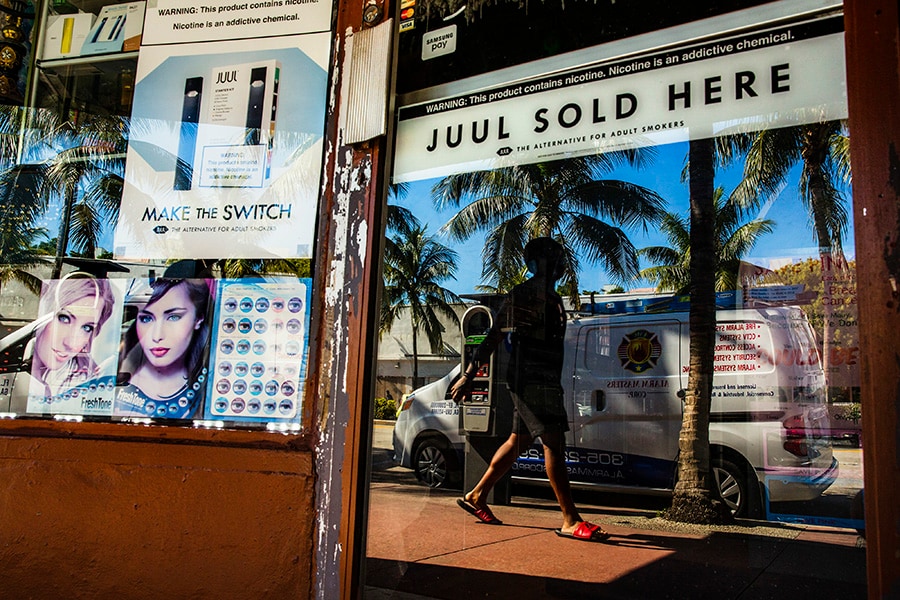
Juul replaces its CEO with a tobacco executive
After frantic days of internal meetings, the vaping company announced that its current chief executive, Kevin Burns, would be replaced by K.C. Crosthwaite—a top official at Altria, the cigarette giant that bought a 35 percent share in Juul for $12.8 billion in December
 A tobacco and e-cigarette shop in Miami Beach, Fla., Dec. 18, 2018. The chief executive of Juul Labs, Kevin Burns, the dominant e-cigarette company that has been the target of public and regulatory outrage over the soaring use of teenage vaping, stepped down on Sept. 25, 2019. Image: Scott McIntyre/The New York Times
A tobacco and e-cigarette shop in Miami Beach, Fla., Dec. 18, 2018. The chief executive of Juul Labs, Kevin Burns, the dominant e-cigarette company that has been the target of public and regulatory outrage over the soaring use of teenage vaping, stepped down on Sept. 25, 2019. Image: Scott McIntyre/The New York Times
Vaping powerhouse Juul Labs replaced its chief executive with a veteran of Big Tobacco on Wednesday, deepening the company’s turmoil and raising doubts about the very future of the electronic cigarette industry.
The sudden announcement capped a relentless cascade of events that has called into question the safety of devices once billed as a promising alternative to cigarettes, one of the world’s leading preventable causes of death. Now, Juul is looking to that very industry for its survival as it faces a federal criminal inquiry, new bans on some of its products, and an onslaught of state and federal regulatory investigations into its marketing practices.
Early Wednesday morning, after frantic days of internal meetings, the company announced that its current chief executive, Kevin Burns, would resign as chief executive. His chosen replacement is K.C. Crosthwaite, a top official at Altria, the cigarette giant that bought a 35% share in Juul for $12.8 billion in December and has seen the company it invested in rocked by a growing crisis.
In another sign of regulatory and business uncertainty, Altria and Philip Morris International said Wednesday that they had ended talks to merge, dashing the chances of reuniting the two arms of what had once been tobacco giant Philip Morris.
The e-cigarette industry — which Juul commands, with more than 70% of the market — is being threatened by twin public health crises: the rise of teenage vaping, which public health officials fear could create a new generation of nicotine addicts, and a surge of severe lung illnesses, including at least 11 deaths, linked to vaping.
David Kessler, a former commissioner of the Food and Drug Administration, said that in light of the epidemic of youth vaping, he doubted that any e-cigarette company could now prove that the benefits of its products outweighed the risks — a critical factor to win agency approval to stay on the market in the United States.
©2019 New York Times News Service




